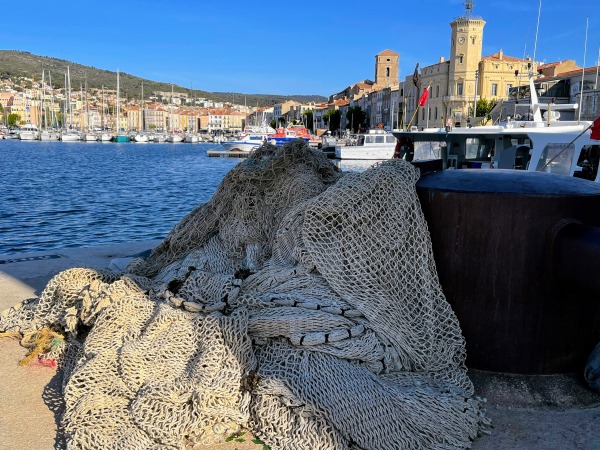France’s La Ciotat port remains a hidden gem.

Less bustling than Marseille, this delightful seaside town quietly celebrates its storied shipbuilding past, association with filmmaking, and love for pétanque.
The La Ciotat port, nestled between Marseille and Toulon, once boasted grand shipyards that drew French emperors, dignitaries, and scholars to witness magnificent ocean liner launches. These grand events occasionally caused the port to overflow, inundating cafes and carrying away diners and even cars into the sea.
However, when I visited recently, the atmosphere was tranquil. While shipbuilding ceased in 1987, the shipyard transformed into a center for refurbishing luxury vessels and superyachts, providing significant employment as the town pivoted toward tourism. A stroll along the seafront revealed a colossal 3D #ILoveLaCiotat sign, vividly painted pointu boats, a ferry bound for Île Verte, stacks of fishing nets, charming eateries, and a meticulously restored hammerhead crane.
Distinct from Marseille’s Vieux-Port, Le Port Vieux offers a stunning view, presenting a panoramic cityscape with towering masts, cranes, riveted girders, and a massive white gantry extending over the port. While sandy beaches adorn the bay’s northeastern part, La Ciotat’s allure lies in its lively, unpretentious, industrial elegance.
A leisurely stroll behind the historic shipyard led me to Parc du Mugel and the Mugel Calanques. These rocky coves with crystal-clear waters and pebbly beaches are surrounded by a botanical garden filled with parasol pines, chestnut trees, wildflowers, and bamboo. Further along the coast, the ochre-hued puddingstone landscape leads to Calanque de Figuerolles, with a quaint hotel and the Chez Tania restaurant. In autumn, it’s a serene haven within the Calanques National Park.
The Palais Lumière, the former summer residence of Auguste and Louis Lumière, holds a significant place in history. Here, they perfected autochrome photography and premiered the first cinematograph films, including the iconic “Arrival of a Train at La Ciotat Station” in September 1895.
The Eden theatre, the world’s oldest surviving cinema, underwent renovation in 2013 during Marseille’s tenure as the European Capital of Culture. It now hosts daily screenings and guided tours on Wednesdays and Saturdays.
The origins of the game of pétanque are tied to La Ciotat, where the first tournament took place in 1910. The courts are open to everyone, holding a historical significance for players worldwide who gather for championships in Marseille. At the Café de l’Horloge, adorned with paperback books, you can observe people while savoring croissants, bagels, or lunchtime soup.
The pedestrianized old town offers a charming array of shops and cafes, including a cheese shop, creamery, Lebanese café, natural wine bar, organic grocer, ice cream parlors, and sunny cafes, creating an organic-conscious, picturesque retreat within this 17th-century center.


